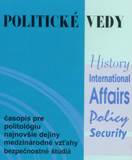Turecká zahraničná politika a aktivity v jej ázijskom vektore
Turkish Foreign Policy and its Activities in the Asian Vector
Author(s): Ľubomír ČechSubject(s): Politics / Political Sciences
Published by: Univerzita Mateja Bela
Keywords: neo-Ottomanism; foreign policy; historical heritage; Turkism; national interests
Summary/Abstract: In the recent period, we encounter changes in the character of Turkish foreign policy in connection with the search for its new identity and requirement for more significant position of the country in international relations. These changes are valued as significantly assertive, leading to strengthening of regional political and economical interests of Turkey. In its foreign policy they are expressed by exceptional activity in the region of Balkan, Middle Asia and Caucasus, in the area of Black, Caspian and Mediterranean ea as well as Africa. Higher interest is required towards Turkish historical and geographical heritage, marked as source of power for successful regional policy. In this regard, a neo-Ottomanism is discussed as a result of former Turkish policy of suppressing cultural and historical relations with regions creating part of the empire, out of which a Turkish republic was created. In the study, the focus is put to ideological scope of the current foreign policy of Turkey and a manner by which it is applied by current government in one of the prioritized areas of its foreign policy – in the area of broader Central Asia, more specifically, in newly created republics of post-Soviet Central Asia and Afghanistan.
Journal: Politické vedy
- Issue Year: 16/2013
- Issue No: 3
- Page Range: 82-103
- Page Count: 22
- Language: Slovak

